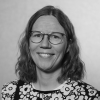At the hospital in Kuopio, Finland, a boy was recently treated for cancer. The tumour was growing fast, and the doctors did what they could, but the boy didn't get better. One Thursday, the doctors wrote to their Nordic network of colleagues and asked for help. That same Thursday, the doctors received a response from Rigshospitalet in Copenhagen, which was able to offer the boy a new experimental treatment. The next day, the boy and his parents were informed about the treatment offer, they accepted, and on Sunday they travelled from Kuopio to Copenhagen.
"This example is one of several that demonstrate the value of Nordic paediatric oncologists collaborating and exchanging experiences about treatment options. Last night, I spoke with one of the doctors from Kuopio who helped treat the boy with cancer. The experimental treatment he received in Copenhagen has shown good results, even though he is not yet completely cancer-free."
This is according to Karsten Nysom, a paediatric oncologist at Rigshospitalet in Copenhagen and former head of a Nordic network of paediatric oncologists from Finland, Sweden, Norway and Denmark. The network works to offer as many children and young people from the Nordic region as possible new experimental treatments if they have cancer that does not respond to standard treatment. The network has been funded by NordForsk, Research Council of Norway and Norwegian Cancer Society.
Read more about the project here.
According to Karsten Nysom, the aim is to prevent children from dying of cancer in the Nordic countries. Paediatric oncologists share knowledge and exchange experiences with each other about new treatment options for children with recurrent cancers.
"When standard treatment does not work and we have tried other treatments, we contact our Nordic paediatric oncology colleagues. We have to do this because we have so few cases of childhood cancer in each country that we need to work together to gain more knowledge. None of us knows everything, so we learn from sharing with each other. This often gives us new perspectives. Every week, we have planned a video meeting where we discuss the children whose cancer does not respond as planned, and then we ask our Nordic colleagues if they know of any new drugs or treatments," says Karsten Nysom.
Paediatric cancer is very rare
Cancer in children is very rare, and the vast majority, more than four out of five, are cured. Around 1,000 children are diagnosed with cancer in the Nordic countries each year, and more than 800 recover with standard cancer treatment. By comparison, approximately 125,000 adults are diagnosed with cancer in the Nordic countries each year.
However, there are also some children who do not recover immediately, or who recover but then relapse. Most children who die of cancer do so because standard treatment does not cure their disease or because the disease returns.
It is in these cases that Nordic co-operation on new experimental forms of treatment is valuable.
“It is important to conduct research into childhood cancer because, among children over the age of one, cancer is still the disease that causes the most deaths. This is not because cancer is widespread among children, but partly because we have become very good at preventing children from dying of other diseases,” says Nysom.
Nordic children can receive treatment in the Nordic region
As a result of the project, two large clinical trial sites for paediatric cancer patients have also been opened. One in Stockholm and one at Rigshospitalet in Copenhagen.
Ten years ago, there were few opportunities for Nordic children with cancer to participate in treatment trials with new medicines. Now there are many more opportunities for these children in the Nordic region, and we offer cross-border treatment more often.
"If you had a child with cancer and wanted to try new medicine for them, you would write or call your colleagues in England, France or Germany. If Nordic children wanted to try some of the new personalised medicine, they had to travel outside the Nordic region, but now, as my example at the beginning showed, we can offer a Finnish child treatment in Denmark and vice versa," says Karsten Nysom.


